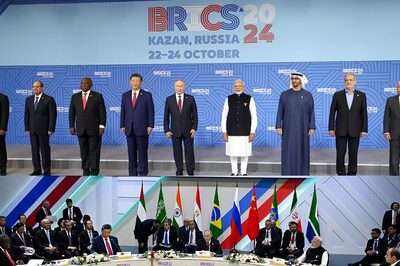
views
London: The British government has given clearance for the use of its attack helicopters in Libya, putting the final decision on deployment in NATO's hands.
Prime Minister David Cameron and British ministers have given clearance "in principle" to put Apache helicopters at NATO's disposal, a person familiar with the matter said on Thursday.
Whether or not to deploy the helicopters is now a matter for operational commanders, the person added, requesting anonymity because no formal announcement has yet been made.
The debate over using attack helicopters in Libya has provoked public squabbling between Britain and France in recent days. France said Monday it would deploy attack helicopters and that Britain would too news the UK angrily denied, saying no decision had yet been made.
Cameron avoided discussing the matter earlier yesterday at the G-8 summit in France, saying that the government was "looking at a range of things that we can do to turn up the pressure" on embattled leader Muammar Gaddafi.
If NATO decides to use attack helicopters, it would mark a shift in the coalition's strategy, which has so far relied on fighter planes.
So far, no allied servicemen or women have been killed in the campaign in Libya. But by using helicopters and flying far lower to hit targets more precisely in urban areas, France and Britain would be putting their pilots at greater risk.
Although Libya's surface-to-air missile network has been effectively destroyed, Gaddafi's forces are said to retain hundreds of heavy machine guns, automatic cannon and shoulder-launched missiles that would pose a danger to helicopters at lower altitudes.
In past conflicts, NATO has shied away from using slow-moving and low-flying helicopters against opponents with such weaponry.




















Comments
0 comment